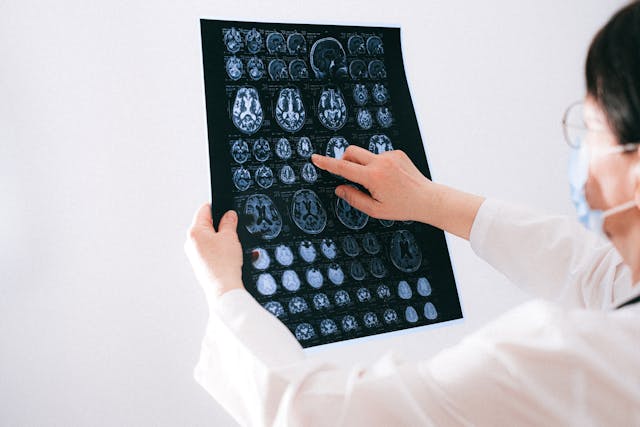
A traumatic brain injury, often abbreviated as TBI, is a complex and chronic medical condition resulting from a blow or jolt to the head. Brain injuries can disrupt normal brain function, leading to a range of physical, cognitive, and emotional symptoms, as well as a disruption of sleep. TBIs range in severity from mild, often called concussions, to severe, and the fallout from every level of brain injury can be life-altering. Understanding the initial signs of a TBI is crucial, especially for those who have recently experienced head trauma. Please continue reading and reach out to a knowledgeable Connecticut brain injury lawyer from Casper & de Toledo to learn more about the first signs of a traumatic brain injury.


What Are the First Signs of a Traumatic Brain Injury?
Recognizing the early signs of a TBI is essential for timely medical intervention. Initially, symptoms may appear mild but can escalate rapidly, necessitating immediate attention. Here’s a list of early TBI indicators:
- Confusion and Disorientation: Immediately following the injury, individuals often experience confusion.
- Headaches: Persistent or worsening headaches are common after a head injury.
- Dizziness: Many report feelings of dizziness or a loss of balance.
- Nausea or Vomiting: This can be an early physical reaction to a brain injury.
- Blurred Vision: Victims might notice changes in their vision, such as blurriness.
- Ringing in the Ears: A persistent ringing or buzzing sound is frequently reported.
- Fatigue: Excessive tiredness can occur, even after minor head injuries.
- Memory Problems: Difficulty recalling recent events or conversations is a warning sign.
- Sensitivity to Light and Noise: Increased sensitivity is often an early indication.
- Behavioral Changes: Sudden mood swings or changes in personality are not uncommon.
Why Is Immediate Medical Attention Important?
Between 80-90% of head injuries are ultimately classified as concussions, which equate to mild brain injuries. Generally, those injuries warrant little treatment during the first thirty days, apart from rest and avoiding overstimulation (think “screen time”). However, it isn’t always clear that there are no co-occurring injuries or that relief of some symptoms might not be available with medication or one or more therapies. And what separates “just a concussion” from a significant health problem might be subtle to the untrained eye. Furthermore, a significant cohort of milder injuries worsen over the hours, days, and weeks following the injury and are understood to reflect the secondary injuries following TBI that have been characterized as part of the neurometabolic cascade. Kutcher JS & Giza CC, “Sports Concussion Diagnosis and Management” Continuum 2014.
Delaying medical care after a head injury can lead to complications and worsen the outcome. While immediate medical attention does not ensure a proper diagnosis, it will likely identify any potentially dangerous or life-threatening conditions. Sometimes reassurance can go a long way toward minimizing anxiety. Like with many health conditions, if the symptoms are worsening, “better be safe than sorry.”
What Should You Do if You Suspect a TBI?
If you suspect that you or a loved one has sustained a TBI due to someone else’s negligence, it’s important to understand your rights and the potential legal consequences of the injury. Documenting the injury and its impact on your life is vital. Seeking the counsel of an experienced personal injury attorney can help you understand your rights and the compensation to which you may be entitled. A knowledgeable lawyer will guide you through the complex legal process, ensuring your interests are protected.
Can a Personal Injury Lawyer Help in Cases of TBI?
Absolutely. A personal injury lawyer focusing on TBIs can be invaluable. They understand the medical complexities and the long-term impact these injuries can have on your life. By partnering with a skilled attorney, you can focus on your recovery while they handle the legal aspects, including negotiating with insurance companies and, if necessary, representing your interests in court.

